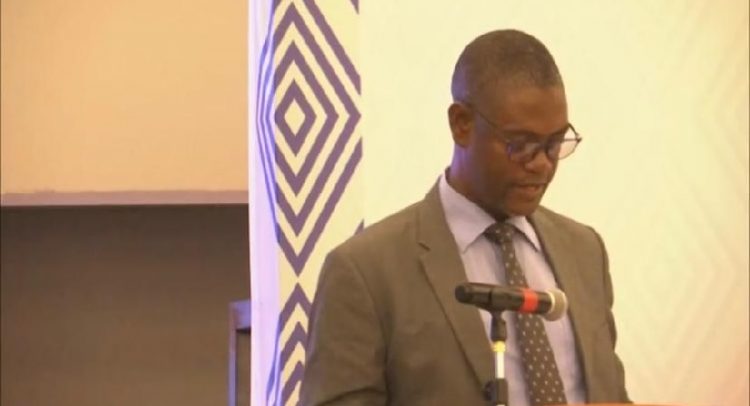Samuel Afotey Otu, JUSAG President
The Judicial Service Staff Association of Ghana (JUSAG) has proposed the retention of 70% instead of 30% on non-taxed internally generated funds by the Judicial Service.
This, the association believes would help the Judiciary in its quest to be financially independent as envisaged by the 1992 Constitution.
Samuel Afotey Otu, President of JUSAG who made the proposal also declared the association’s backing for calls by the Magistrates and Judges in the country for financial independence of the Judiciary.
This according to JUSAG, is because, an independent judiciary will ensure that judges can operate without any external interference or influence.
Mr. Otu said these in a goodwill message during the opening ceremony of the two-day annual conference of the Association of Magistrates and Judges of Ghana,(AMJG), in Accra.
“The 1992 Constitution of Ghana hopes for the good people of Ghana, a Judiciary that is absolutely independent of any single person, body or organ of state. It intends for us a Judiciary that is subject only to the Constitution and accountable to the people of Ghana.”
“Indeed, a financially independent and accountable Judiciary is crucial for effective justice delivery in Ghana,” he explained.
“This is because an independent Judiciary ensures that Judges can operate without any external interference or influence, allowing them to make impartial decisions based on the law and the evidence presented”, the JUSAG President noted.
Mr. Otu also indicated that a separate budgetary allocation from government, will prevent financial dependence on the executive and allow the Judiciary to allocate funds according to its own requirement.
In the a proposal to the AMJG, JUSAG stated that, an increase in the retention of the non-tax revenue from 30% to 70% will support the cause.
“This will increase the IGF of the Judiciary and enable us to internally settle the arrears of the allowances due Judges and Magistrates as well as staff of the Judicial Service.”
“The dignified status of judges and magistrates require that the Judiciary operates an in-house financial co-operative credit union to make us completely independent of the private financial institutions whose cases come to courts for settlement,” he stated.
Mr Afotey Otu further pointed out the importance of the need for the judges to subscribe to the JUSCOFund by stating that it will eliminate any form of perceived bias from the public.
“This is crucial, as it will help to prevent any perceived biases or conflicts of interest that may arise from relying on these branches of government for financial support,”
He added that an independent Judiciary can make decisions without fear of any repercussions, ensuring fairness and justice for all.
He therefore called on government to enhance the salaries and welfare packages of Judges and Judicial Service staff to reduce the temptation of corruption and to also increase job satisfaction.
While commending the Chief Justice for her role in the community engagement programs, Mr Afotey Otu said, “the public needs to be reminded of the role and importance of an independent judiciary.”
He said, encouraging public engagement with the Judiciary, through mechanisms such as public consultations or open court hearings can also foster accountability and public trust.
BY Gibril Abdul Razak


